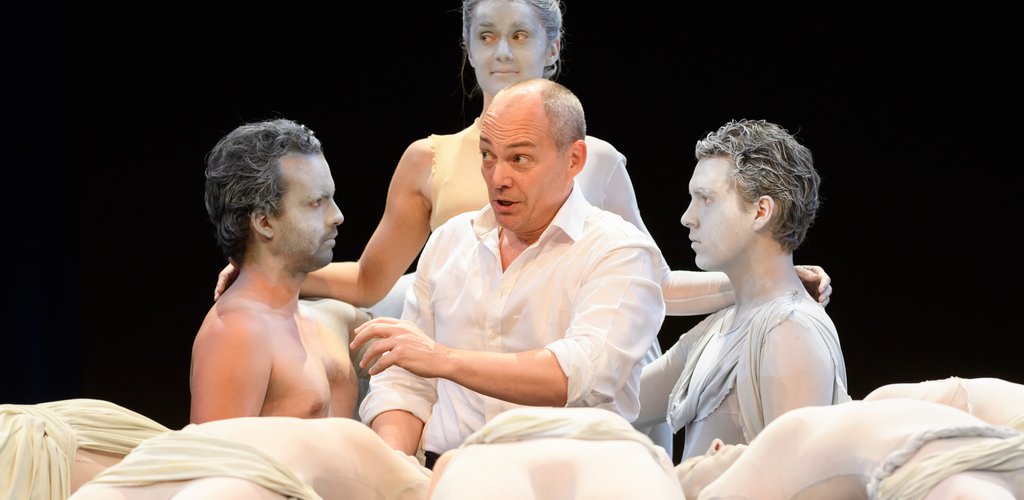The non-musical elements of budgets, management issues, and production values frequently can drown out what is most essential: the opera itself. Countering this is Ivan Fischer’s concept of Don Giovanni. As conductor and stage director, he is, ultimately, a conduit for Mozart’s score, Da Ponte’s libretto, and the music drama they created.
At the Rose Theater at Jazz at Lincoln Center, there was no spectacle, no scenery to applaud, not a hint of the opera house experience. There was only the music, the characters, and the musicians who brought it to life.
In the lead was bass Christopher Maltman, whose characterization of the Don as a monumental egoist was creative, insightful, and commanding. This Don was constantly bemused with and entertained by himself, which gave him the charisma of a sociopath. And this was done primarily through his voice, which had a crisp edge and precise articulation. Maltman’s tone was full and with a combination of light and darkness, making a clear contrast with Leporello.
The Don is far less a comic role than Leporello, and Maltman’s take on the character—a profound insouciance—is uncommon. This disregard for anything other than his own pleasure was compelling on the surface and tied the knot between comedy, brutality, and the supernatural in a way that standard productions rarely approach.
Fischer’s choice of the more dramatically coherent and direct Prague version made this possible, but it still needed realization on stage. In this, all the performers shined.
One notable difference between the Prague version and the changes made for Vienna, is that for Prague Mozart had not yet written “Dalla sua pace.” This left Don Ottavio (tenor Zoltán Megyesi) mainly with “Il mio tesoro” and reinforced that Ottavio is the least important character in the opera. He is left to follow Donna Anna (soprano Laura Aikin) around as part affianced and part butler. Megyesi gave it his all with his voice, while staying inside the music.
That last was true for all the singers—the unseen but overwhelming presence throughout was Mozart himself. Every dramatic choice, musical emphasis, and character detail came straight from the score, through the performers. They revealed how masterful, logical, and powerful the score and libretto are, and gave them life.
All the singing was flawless, and beyond just their voices, the performers uniformly embodied their characters in a way that went beyond just acting. Donna Anna’s fire for vengeance was genuine, soprano Lucy Crowe’s Donna Elvira was real, her confusion superficially comical but tragic underneath.
